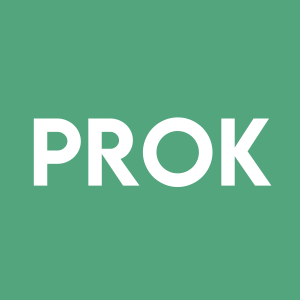ProKidney Presents Full Results from the Phase 2 REGEN-007 Trial of Rilparencel at the American Society of Nephrology Kidney Week 2025
Rhea-AI Summary
ProKidney (Nasdaq: PROK) presented full Phase 2 REGEN-007 results at ASN Kidney Week 2025 showing rilparencel slowed CKD progression in patients with advanced CKD and type 2 diabetes. Group 1 (n=24) bilateral kidney injections improved annual eGFR slope by 4.6 mL/min/1.73m2 (78%) versus pre-injection (p<0.001). A subgroup meeting Phase 3 criteria (15/24) improved by 5.5 mL/min/1.73m2 (85%) (p=0.005). Group 2 (n=25) showed a 1.7 mL/min/1.73m2 (50%) improvement that was not statistically significant (p=0.085).
No rilparencel-related serious adverse events were observed and safety was consistent with prior reports. FDA previously accepted eGFR slope as a surrogate endpoint; >50% of ~360 patients for accelerated-approval analysis were enrolled as of Aug 2025, with topline results anticipated in Q2 2027.
Positive
- eGFR slope improvement of 4.57 mL/min/1.73m2 in Group 1 (78%)
- Subgroup meeting Phase 3 criteria showed 5.5 mL/min/1.73m2 improvement (85%, p=0.005)
- No rilparencel-related serious adverse events observed in Phase 2
- FDA acceptance of eGFR slope as surrogate endpoint for accelerated approval
Negative
- Group 2 improvement of 1.70 mL/min/1.73m2 (50%) was not statistically significant (p=0.085)
- PROACT 1 requires ~360 patients; only >50% enrolled as of Aug 2025, leaving enrollment risk to reach readout
- Topline data for accelerated-approval expected in Q2 2027, indicating a multi-quarter timeline before potential approval
News Market Reaction – PROK
On the day this news was published, PROK gained 4.07%, reflecting a moderate positive market reaction. Argus tracked a trough of -9.9% from its starting point during tracking. Our momentum scanner triggered 2 alerts that day, indicating moderate trading interest and price volatility. This price movement added approximately $33M to the company's valuation, bringing the market cap to $845M at that time.
Data tracked by StockTitan Argus on the day of publication.
- In patients with advanced chronic kidney disease (CKD) and diabetes, treatment with rilparencel resulted in statistically significant and clinically meaningful slowing of CKD progression
- Bilateral kidney injection with rilparencel resulted in a 4.6 mL/min/1.73m2 (
78% ) improvement in the annual decline of estimated glomerular filtration rate (eGFR) slope in Group 1 (n=24) patients - No rilparencel-related serious adverse events were observed; the overall study safety profile was consistent with previously reported study results and comparable to a kidney biopsy
- FDA previously confirmed eGFR slope is an acceptable surrogate endpoint for accelerated approval of rilparencel
- More than half of the patients required for the Phase 3 REGEN-006 (PROACT 1) accelerated approval analysis using eGFR slope have been enrolled; topline results anticipated in Q2 2027
- Rilparencel is the only cell therapy in a Phase 3 clinical study for the treatment of CKD and type 2 diabetes
WINSTON-SALEM, N.C., Nov. 06, 2025 (GLOBE NEWSWIRE) -- ProKidney Corp. (Nasdaq: PROK) (“ProKidney” or the “Company"), a leading late clinical-stage cell therapy company focused on CKD, today presented full results from the Phase 2 REGEN-007 trial evaluating rilparencel in patients with advanced CKD and diabetes. The data, featured in a late-breaking clinical trials presentation at the American Society of Nephrology (ASN) Kidney Week 2025, further demonstrate the potential of rilparencel to preserve kidney function in patients with advanced CKD and diabetes who are at high risk of kidney failure and have limited therapeutic options.
The full Phase 2 trial results presented at ASN Kidney Week 2025 add to the body of clinical data for rilparencel that support the ongoing registrational Phase 3 PROACT 1 study. A first-of-its-kind, proprietary, autologous cell therapy, rilparencel has the potential to be a novel treatment for advanced CKD and diabetes, offering patients an alternative therapeutic option to delay or prevent the need for dialysis.
“Cell therapy represents an emerging therapeutic class that seeks to treat CKD by addressing the multiple, maladaptive processes responsible for kidney injury and progression,” said Dr. Arnold Silva, principal investigator of the REGEN-007 study, founding physician partner and director of clinical research at Boise Kidney & Hypertension Institute. “These latest study findings further confirm the potential of rilparencel to positively impact kidney function in patients with advanced CKD and diabetes. Evidence of kidney function stabilization through assessments of eGFR slope, a valuable and clinically meaningful outcome measure of CKD progression, along with confirmation of a well-tolerated safety profile, support continued evaluation of rilparencel as a novel therapeutic option.”
Phase 2 REGEN-007 Overview and Full Results Summary
REGEN-007 was a multi-center Phase 2 open-label 1:1 randomized two-arm trial in patients with advanced CKD and diabetes. Eligible participants were assigned to one of two treatment groups using different dosing regimens. Group 1 replicated the dosing schedule of the ongoing Phase 3 PROACT 1 study in which patients receive two scheduled rilparencel injections (one in each kidney), approximately three months apart. Group 2 tested an exploratory dosing regimen to investigate whether disease progression triggers, rather than a time-based trigger, could optimize multiple doses of rilparencel. Group 2 received one injection and a second only if a re-dosing trigger was met within 15 months after the first injection. Participants were followed up to 18 months after their last injection. Overall, 87 rilparencel injections in 49 participants were performed during the study. The primary efficacy endpoint was change in eGFR slope from the pre-injection period to the period after the last injection analyzed using a linear mixed model. The primary safety endpoint was the percentage of participants with procedure- and investigational product-related treatment-emergent adverse events (TEAEs).
Among the full results from the study, key efficacy and safety findings include:
- In Group 1 (n=24), bilateral kidney injection with rilparencel resulted in a 4.6 mL/min/1.73m2 improvement in the annual decline in eGFR slope; this
78% improvement was statistically significant and clinically meaningful (p<0.001) - Among Group 1 patients, 15 of 24 (
63% ) met key Phase 3 PROACT 1 inclusion criteria; in this subgroup, bilateral kidney injection resulted in a 5.5 mL/min/1.73m2 improvement in the annual decline in eGFR slope; this85% improvement was statistically significant and clinically meaningful (p=0.005) - Group 2 (n=25) tested an exploratory dosing regimen that resulted in 10 of 25 (
40% ) patients receiving only one rilparencel injection; following treatment with rilparencel, the annual decline in eGFR slope improved by 1.7 mL/min/1.73m2, or50% ; this improvement was not statistically significant (p=0.085) but suggests evidence of a dose response - Post-hoc analysis of patient subgroups on standard-of-care (SOC) medications, including sodium-glucose cotransporter-2 inhibitors (SGLT2i) and glucagon-like peptide-1 receptor agonists (GLP-1 RA), suggest rilparencel had a treatment effect incremental to that observed with SOC
- Rilparencel was well tolerated and had an acceptable safety profile
| Annual eGFR Slope, mL/min/1.73m2 ( | ||||||
| Group | N (mITT) | Pre Injection | Post-Last Injection | Absolute Improvement | Relative Improvement | |
| 1 | 24 | -5.84 (-7.97, -3.70) | -1.27 (-3.97, 1.43) | 4.57 (1.95, 7.18) | 78% | |
| 2 | 25 | -3.40 (-5.03, -1.77) | -1.71 (-3.78, 0.36) | 1.70 (-0.24, 3.63) | 50% | |
"The full results from REGEN-007 reinforce the potential of rilparencel to address a significant unmet therapeutic need and make a meaningful difference in the lives of people living with CKD and their families,” said Bruce Culleton, M.D., Chief Executive Officer of ProKidney. "We, along with our dedicated study investigators, look forward to evaluating rilparencel in our ongoing Phase 3 study as we advance our efforts to bring this innovative treatment option to patients in need.”
Phase 3 PROACT 1 Registrational Program Update
ProKidney launched the Phase 3 PROACT 1 clinical trial for rilparencel to further assess its potential to preserve kidney function in patients with advanced CKD and type 2 diabetes. The U.S. Food and Drug Administration (FDA) confirmed in July 2025 that eGFR slope is an acceptable surrogate endpoint for the study and that PROACT 1 may be used to support both accelerated and confirmatory approval of rilparencel. More than half of the approximately 360 patients required for the accelerated approval analysis using eGFR slope had been enrolled as of August 2025. Topline data readout to support an application for accelerated approval is anticipated in Q2 2027. Rilparencel is the only cell therapy in a Phase 3 clinical study for the treatment of CKD and type 2 diabetes.
Visit the ProKidney website to view the ASN Late-Breaking Poster Presentation (#: TH-PO1203), “Renal Autologous Cell Therapy in Diabetes and CKD (Phase 2 REGEN-007 Study Results)”: https://prokidney.com/our-technology/publications.
About Chronic Kidney Disease
CKD is a progressive condition characterized by the gradual decline of kidney function, which can ultimately lead to end-stage kidney disease (ESKD) requiring dialysis or transplantation. An estimated 37 million adults in the U.S. have CKD, though many remain undiagnosed in the early stages. Diabetes is the leading cause of CKD, and individuals with both conditions face significantly elevated risks of cardiovascular events, hospitalization, and mortality. ProKidney is developing rilparencel for patients with Stage 3b/4 CKD and diabetes, a population that includes 1 to 2 million people in the U.S. While current treatment options aim to slow disease progression, there remains a substantial unmet need for therapies that can stabilize kidney function and delay or prevent the need for dialysis in patients with advanced CKD.
About ProKidney Corp.
ProKidney, a pioneer in the treatment of CKD through innovations in cell therapy, was founded in 2015 after a decade of research. ProKidney’s lead product candidate, rilparencel (also known as REACT®), is a first-in-class, patented, proprietary autologous cellular therapy with regenerative medicine advanced therapy designation that is being evaluated in the ongoing Phase 3 REGEN-006 (PROACT 1) study for its potential to preserve kidney function in patients with advanced CKD and type 2 diabetes. For more information, please visit www.prokidney.com.
Forward-Looking Statements
This press release includes “forward-looking statements” within the meaning of the “safe harbor” provisions of the Private Securities Litigation Reform Act of 1995. ProKidney’s actual results may differ from its expectations, estimates and projections and consequently, you should not rely on these forward-looking statements as predictions of future events. Words such as “expect,” “estimate,” “project,” “budget,” “forecast,” “anticipate,” “intend,” “plan,” “may,” “will,” “could,” “should,” “believes,” “predicts,” “potential,” “continue,” and similar expressions (or the negative versions of such words or expressions) are intended to identify such forward-looking statements. These forward-looking statements include, without limitation, the Company’s beliefs that its Phase 3 REGEN-006 (PROACT 1) trial could be sufficient to support a potential BLA submission and full regulatory approval, eGFR slope can be used as a surrogate endpoint on an accelerated approval pathway for rilparencel, expectations with respect to financial results and expected cash runway, including the Company’s expectation that current cash will support operating plans into 2027, future performance, development and commercialization of products, if approved, the potential benefits and impact of the Company’s products, if approved, potential regulatory approvals, the size and potential growth of current or future markets for the Company’s products, if approved, the advancement of the Company’s development programs into and through the clinic and the expected timing for reporting data, the making of regulatory filings or achieving other milestones related to the Company’s product candidates, and the advancement and funding of the Company’s developmental programs, generally. Most of these factors are outside of the Company’s control and are difficult to predict. Factors that may cause such differences include, but are not limited to: disruptions to our business or that may otherwise materially harm our results of operations or financial condition as a result of our recent domestication to the United States; the inability to maintain the listing of the Company’s Class A common stock on Nasdaq; the inability of the Company’s Class A common stock to remain included in various indices and the potential negative impact on the trading price of the Class A common stock if excluded from such indices; the inability to implement business plans, forecasts, and other expectations or identify and realize additional opportunities, which may be affected by, among other things, competition and the ability of the Company to grow and manage growth profitably and retain its key employees; the risk of downturns and a changing regulatory landscape in the highly competitive biotechnology industry; the risk that results of the Company’s clinical trials may not support approval; the risk that the FDA could require additional studies before approving the Company’s drug candidates; the inability of the Company to raise financing in the future; the inability of the Company to obtain and maintain regulatory clearance or approval for its products, and any related restrictions and limitations of any cleared or approved product; the inability of the Company to identify, in-license or acquire additional technology; the inability of Company to compete with other companies currently marketing or engaged in the biologics market and in the area of treatment of kidney diseases; the size and growth potential of the markets for the Company’s products, if approved, and its ability to serve those markets, either alone or in partnership with others; the Company’s estimates regarding expenses, future revenue, capital requirements and needs for additional financing; the Company’s financial performance; the Company’s intellectual property rights; uncertainties inherent in cell therapy research and development, including the actual time it takes to initiate and complete clinical studies and the timing and content of decisions made by regulatory authorities; the fact that interim results from our clinical programs may not be indicative of future results; the impact of geo-political conflict on the Company’s business; and other risks and uncertainties included under the heading “Risk Factors” in the Company’s most recent Annual Report on Form 10-K, subsequent Quarterly Reports on Form 10-Q and other filings with the Securities and Exchange Commission. The Company cautions readers that the foregoing list of factors is not exclusive and cautions readers not to place undue reliance upon any forward-looking statements, which speak only as of the date made. The Company does not undertake or accept any obligation or undertaking to release publicly any updates or revisions to any forward-looking statements to reflect any change in its expectations or any change in events, conditions or circumstances on which any such statement is based.
ProKidney Contact
Ethan Holdaway
Ethan.Holdaway@prokidney.com
Media Contact
Audra Friis
audrafriis@sambrown.com
Investor Relations Contact
Daniel Ferry
Daniel@lifesciadvisors.com








